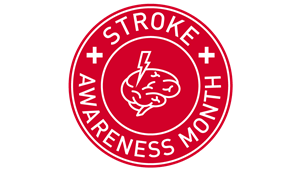
UPDATE: Current protocols for visitation and masking are different than when this article was originally published. To see our current guidance, visit our website.
New data has emerged that suggests COVID-19 can cause sudden strokes in adults in their 30s and 40s. The evidence shows that the coronavirus can cause blood clots, which is the primary catalyst to a stroke.
"The number of clotting problems I'm seeing in the ICU, all related to COVID-19, is unprecedented," Dr. Jeffrey Laurence, a hematologist at Weill Cornell Medicine in New York City, told CNN. "Blood clotting problems appear to be widespread in severe COVID [19]."
For those who experience stroke symptoms, calling 911 is essential to a safe recovery, explained Kelly Matmati, MD, the Stroke Program Director at Rochester General Hospital.
What other information is important for stroke patients? Dr. Matmati answers your questions.
The main symptoms of a stroke include sudden onset of:
Use the acronym F.A.S.T. to help remember the signs of a stroke:
The F.A.S.T. acronym helps patients recognize some of the main symptoms of stroke, but not all of them.
Call 911 immediately. Stroke is not something to take lightly and there are time-sensitive treatments that can be given to patients if they get to the hospital right away. The faster the stroke is treated, the more likely the patient is to recover.
Patients who experience stroke symptoms should still call 911 and will be brought into the emergency department.
Patients entering Rochester Regional Health emergency rooms are no longer required to wear masks, but are encouraged to wear them if they are showing signs of respiratory illness such as coughing, sneezing, fever, runny nose, etc.).
No. Stroke patients or anyone experiencing symptoms of a stroke should call 911 right away. Our hospitals are still the safest place for someone experiencing stroke symptoms or suffering from a stroke.
Learn more about how Rochester Regional keeps you safe
All patients will be given a face mask upon entering the hospital.
We ask that patients let the EMS staff, or the 911 operator, know if anyone in the household is experiencing symptoms of COVID-19. This will allow the medical professionals to take the necessary precautions to protect themselves and other patients.
We advise patients who are recovering from a stroke to stay home as much as possible and practice social distancing and proper hand washing.
We are providing patients with their follow-up visits remotely using telemedicine so that they don’t have to leave the house. Telemedicine is a way of providing healthcare through video chat.
Yes, we are still sending patients to rehabilitation. Rehabilitation helps stroke patients rebuild their lives, restore function and independence as much as possible, and prevent recurrent stroke.
It is important that patients take extra precautions to protect themselves from COVID-19. We recommend they wash their hands with soap and water frequently and let their healthcare providers know if they are experiencing symptoms.